The Iron Major

Brief Synopsis
Cast & Crew
Ray Enright
Pat O'brien
Ruth Warrick
Robert Ryan
Leon Ames
Russell Wade
Film Details
Technical Specs

Synopsis
In Worcester, Massachusetts, in 1942, seven children of beloved football coach Frank "Cav" Cavanaugh are sworn into the military service to serve their country in World War II. As Cav's wife Florence proudly shows old family friend Father Tim Donavan pictures of her children dressed in their military uniforms, Tim presents her with a story that he is writing about her departed husband: Tim's story begins in Worcester in 1891, when Cav is fifteen years old. Young Cav's parents hope that he will give up football for a career in law, but when his high school coach suggests that he play college football at Dartmouth, Cav and his friend Bob vow to attend that university. Several years later, Bob and Cav are members of the Dartmouth team. Just as he is elected team captain, Cav receives word of his father's death. To support his family, Cav leaves Dartmouth and accepts a job coaching at the University of Cincinnati. By implementing rigid training rules, Cav molds his players into a winning team and moves on to the University of Denver. While visiting home one day, Cav meets Florence Ayres and decides to return to Worcester and study law. After earning his law degree, Cav loses his temper and insults the judge at his first trial. Although Cav is discouraged, Florence insists that they marry and move in with her parents. After the birth of their first child, Cav returns to football and takes a job coaching at Worcester's Holy Cross University, where he meets Tim, a player on the team. A successful season at Holy Cross leads to an offer to coach at Dartmouth. As the war in Europe escalates, Cav's players begin to drop out of school and enlist in the military. When Tim, now a priest, visits his old coach on his way to the front, Cav rails against enlisting, claiming that football is his fight. In response, Tim answers that the war is everyone's fight. When the United States declares war on Germany, Cav enlists out of a sense of duty to his country, ignoring Florence's objections that he is the father of six children and should stay at home. Cav is sent overseas, where he is promoted to captain and assigned to rally the exhausted troops for a march to the front. On the grueling trek, Cav offers encouragement to Manning, a young private who breaks down under the strain. While on a special reconnaissance mission one day, Cav is gravely wounded and almost dies of his injuries. At the hospital, he is visited by Manning, who tells him that he has been named the "Iron Major" because of his ability to survive. Sent home to recover, Cav is visited by Bob, who offers him a coaching job at Boston College. At Boston, Cav discovers that his players are skeptical about the capability of their convalescing coach. Cav proves himself by drilling his underdog team into shape and rallying them to a victory over Yale. Several winning seasons later, Cav visits Tim and confesses that his eyesight and health are failing and the doctor has advised him that he has only five more years to live. To provide security for his family, Cav decides to take a lucrative job at Fordham University in New York City. Despite his gradually failing eyesight, Cav molds his team into winners. His career culminates five years later, when he goes totally blind during a game in which his team wins the intersectional championship by beating Oregon State. After the game, the players present the now blind Cav with the football, and he bids them farewell and resigns. On his deathbed, Cav urges his friends and family to continue fighting for their beliefs. Completing his story, Tim salutes Cav's spirit as American fighting troops march into war.

Director
Ray Enright
Cast
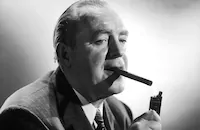
Pat O'brien
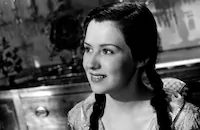
Ruth Warrick
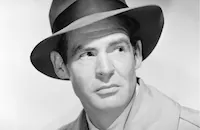
Robert Ryan
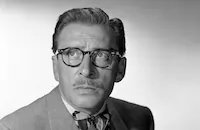
Leon Ames

Russell Wade
Bruce Edwards

Richard Martin

Pierre Watkin
Arnold Stanford
Bob Thom
Lew Harvey
Bud Geary
Walter Brooke

Louis Jean Heydt
Sada Simmons
Mary Currier

Frank Puglia
Walter Fenner
John Dilson
Louis Borell
Billy Roy
Robert Winkler
Henry Roquemore
Bobby Larson
George Nokes
Rudy Wessler
Richard Dillon
Roland Dupree
Michael Miller
Joel Davis
Teddy Infuhr
Wheaton Chambers
Myron Healey
Dean Benton
Kirk Alyn
James Jordon
Victor Kilian Jr.
Margaret Landry

Ian Wolfe
Harry Tyler

Eddie Woods
Pat O'malley
Elena Duran
Ramon Ros
Bonnie Braunger

Joe Crehan
Joe King
Eddie Hart
Milton Kibbee
Paul Lepere
Joe O'connor
Brooks Benedict
Brandon Beach
John B. Williams
Harold Landon
James Courtney

Buddy Yarus
Mel Schubert
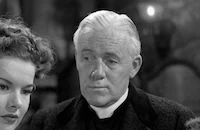
Charles D. Brown
William Forrest
Sam Mcdaniel

John Miljan
Larry Lund
Bob Benton
Steve Barclay
Walt Robbins
Sid Jordan
John Frederick

James Flavin
Russ Clark
Fred Kohler
Florence Hansen
Steve Winston
James Magill
Gordon Clark

John Hamilton
Dorothy Vaughan
Frank Shannon
Paul Mcvey

Lee Phelps
Craig Flanagan
Michael Road
Robert Andersen
Mike Lally

Mary Halsey

Barbara Hale
Wilbur Mack
Cy Ring
Bert Moorhouse
Crew
C. Bakaleinikoff
Melville Burke
Florence E. Cavanaugh
Carroll Clark
Albert S. D'agostino
Warren Duff
Robert Fellows
Al Fields
Robert De Grasse
William P. "hiker" Joy
Aben Kandel
Edward Killy
Ernest E. La Branche
Philip Martin Jr.
Darrell Silvera
Edward Stevenson
James G. Stewart
Douglas Travers
Richard Van Hessen
Roy Webb
Robert Wise

Film Details
Technical Specs

Articles
The Iron Major
In the 1930s, despite the variety of his roles, O'Brien became identified with a particular type of character, the ghetto priest, a tough guy who grew up on the wrong side of the tracks, found direction in the church and returned to his roots to help other less fortunate boys like himself, usually bucking his childhood-pal-turned-criminal James Cagney. It's not that O'Brien played a great number of those characters, but he did it so well it's impossible to think of his film career without the type coming to mind.
In the 1940s, O'Brien's screen image became equally tied to another character, the hard-driving, inspirational sports coach who molds his young athletes into a winning team and gains their lifelong respect. Again, not a huge body of films featuring this character type ¿in fact the image is based almost entirely on one indelible entry, Knute Rockne, All American (1940). But O'Brien proved so potent as the real-life legendary Notre Dame football coach, he returned for a very similar part three years later in this picture.
Another true-life story, The Iron Major (1943) follows the life of Frank Cavanaugh of Dartmouth, Boston College and Fordham. Father of ten, dedicated to his loving wife, a firm believer in God and country, Cavanaugh pursues a highly successful coaching career, consistently leading various college teams to winning seasons, despite severe eye damage in World War I. Even as total blindness begins to overtake him, Cavanaugh coaches Fordham to a memorable victory over Oregon State in 1932. Based on a book by Cavanaugh's wife Florence, the movie follows him from childhood to his death.
The picture was considerably enlivened by exciting gridiron scenes, including newsreel footage of Cavanaugh-coached games, most significantly the famous Fordham-Oregon State match. Because the picture was released at the height of World War II, Cavanaugh's World War I experiences were given major emphasis to draw parallels between his service and that of the GIs fighting in the new war.
O'Brien was given a strong supporting cast, including Ruth Warrick as his wife Florence. Warrick made a memorable film debut a couple years earlier as the wife of Orson Welles in the title role of Citizen Kane (1941). Soap opera fans may remember her from her long stint as the matriarch Phoebe on All My Children.
The Iron Major was a big boost for the up-and-coming career of Robert Ryan. The young actor met Pat O'Brien when they were both cast in the war drama Bombardier (1943). O'Brien took an immediate liking to Ryan, partly because of his professionalism and honest, straightforward way of dealing with people and partly because of their shared Irish heritage. It was O'Brien who lobbied heavily for Ryan to play the part of Father Donovan, Cavanaugh's priest and former teammate. In his autobiography, O'Brien wrote that Ryan was "magnificent" and, referring tongue-in-cheek to his own priest roles, "stole some of my usual ecclesiastic glory." Shortly after this film, Ryan had a major breakthrough as Ginger Rogers' husband in Tender Comrade (1943), the last of six films he released that year. He made only one picture in 1944 before joining the war effort, but when he returned to the screen in 1947, Ryan soon appeared in a string of critical and commercial successes, re-embarking on a career that remained strong until his death in 1973.
One of the editors on this film was Robert Wise, who went on to win Academy Awards for his direction of West Side Story (1961) and The Sound of Music (1965).
Director: Ray Enright
Producer: Robert Fellows
Screenplay: Warren Duff, Aben Kandel, based on the book by Florence Cavanaugh
Cinematography: Robert De Grasse
Editing: Philip Martin, Robert Wise
Art Direction: Carroll Clark, Albert S. D'Agostino
Original Music: Roy Webb
Cast: Pat O'Brien (Frank Cavanaugh), Ruth Warrick (Florence Cavanaugh), Robert Ryan (Father Tim Donovan), Leon Ames (Robert Stewart).
BW-86m.
by Rob Nixon

The Iron Major
Ruth Warrick (1915-2005) - Ruth Warrick, (1915-2005)
She was born on June 29, 1915 in St. Joseph, Missouri. After attaining a degree in theatre from the University of Kansas City, she left for New York, where in 1938, she joined the Mercury Theater troupe, headed by a young artist on the rise by the name of Orson Welles. When Welles prepared to film Citizen Kane (1941) he took several players from his Mercury Theater (Joseph Cotten, Everett Sloan, Agnes Moorehead) and of course, Ruth Warrick. She made her film debut in Welles' cinematic epic as Emily Norton Kane. Indeed, to many film buffs, Warrick's icy charms are indispensable to the celebrated montage sequence opposite Welles at the breakfast table; particularly when he broaches the subject of her husband's infidelity:
Emily Kane: Charles, people will think...
Charles Kane: What I tell them to think!
Warrick received fine reviews for her performance, and she had good roles in her next two films The Corsican Brothers (1941), with Douglas Fairbanks Jr., and Journey Into Fear (1942), opposite Joseph Cotton. Sadly, Hollywood, not knowing what to do with a well-trained, mature actress like Warrick, began to cast her into routine, forgettable fare: Mr. Winkle Goes to War (1944), China Sky (1945), and Swell Guy (1946). Disney's Song of the South (1947), was a box-office hit, and was her best film in a while, but overall, the material she received over the next few years, simply wasn't worthy of her talents.
Things turned around for her in the mid-50s, when Warrick discovered the medium of television. She had regular roles on The Guiding Light (1953-54), As the World Turns (1956-60), Father of the Bride (1960-61), and was unforgettable as the sinister housekeeper, Hannah Cord, in Peyton Place (1965-67). Yet it was her 35-year run in the role of Phoebe Wallingford in All My Children (1970-2005), that Warrick achieved her greatest triumph. As the rich, intrusive matriarch of the fictitious, affluent town known as Pine Valley, Warrick found a role that could be at once gloriously hammy and quietly conniving - qualities that highlighted her renown versatility as an actress. To honor her contribution to television, Warrick received a lifetime achievement award from the Daytime Emmys last December. She is survived by three children, a grandson, and six great-grandchildren.
by Michael T. Toole
Ruth Warrick (1915-2005) - Ruth Warrick, (1915-2005)
Quotes
Trivia
Notes
The opening credits feature the following acknowledgment: "RKO Radio Pictures wishes to gratefully acknowledge the gracious cooperation of the University of Cincinnati, Boston College, Boston University School of Law, Dartmouth College, College of the Holy Cross, Fordham University and Major Frank Cavanaugh's legion of friends and admirers." As depicted in the film, Frank Cavanaugh (1876-1933), was a celebrated college football coach and World War I hero. A pre-production news item in Hollywood Reporter notes that Jane Wyatt tested for the female lead in this picture. Although a Hollywood Reporter news item adds Josh Hardin to the cast, his appearance in the final film has not been confirmed. According to other news items in Hollywood Reporter, the football scenes were filmed on location at Dartmouth, Fordham, Boston and Holy Cross colleges. The production was shut down from 20 May-May 24, 1943 when Pat O'Brien left for a personal appearance tour to promote his film Bombardier (see entry above). O'Brien also appeared as Knute Rockne, another famous college football coach, in the 1940 RKO film Knute Rockne-All American (see AFI Catalog of Feature Films, 1931-40; F3.2320). This picture marked the return of Leon Ames to the screen after a two-year hiatus spent performing on Broadway.

Miscellaneous Notes
Released in United States 1943
Released in United States on Video April 25, 1990
Released in United States 1943
Released in United States on Video April 25, 1990














